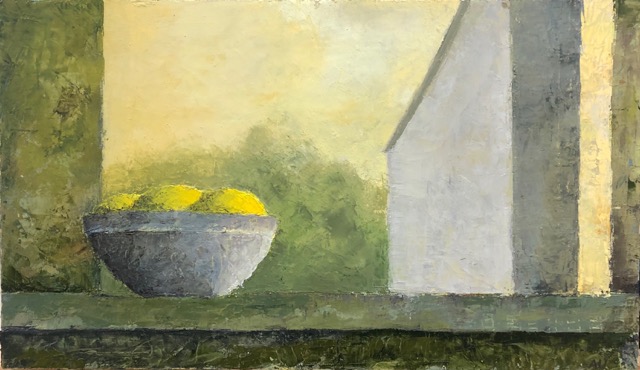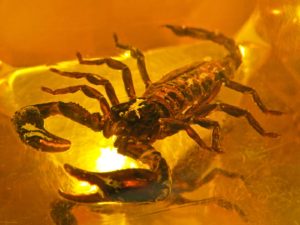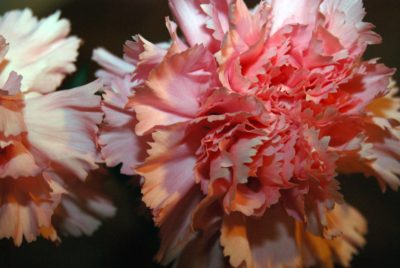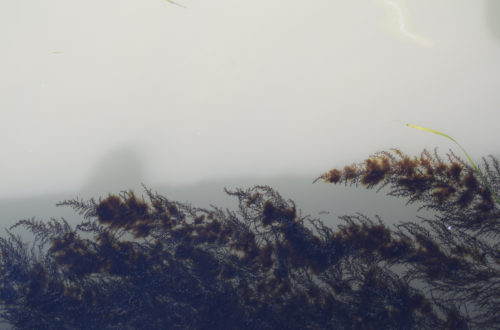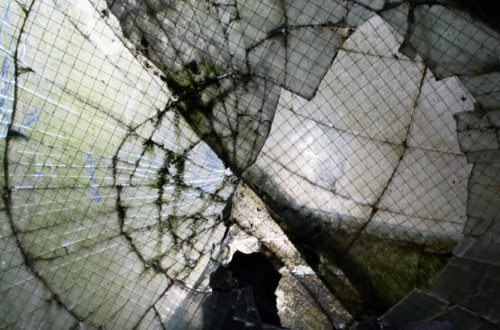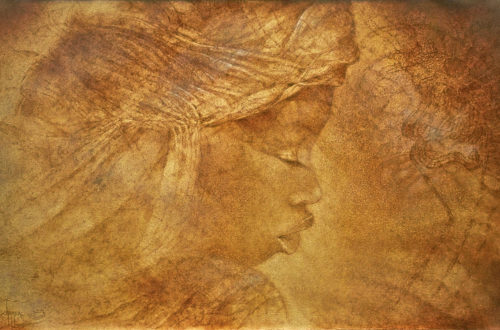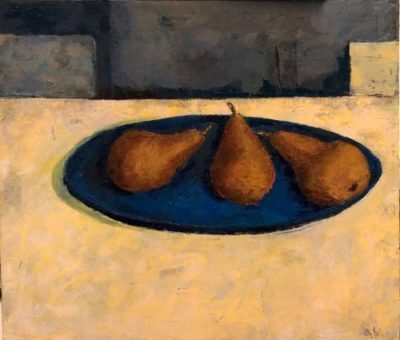
Five poems from "Nomad" by João Luís Barreto Guimarães (translated from the Portuguese by António Ladeira and Calvin Olsen) Artwork by Anthony Ulinski
In the photographs of others
I am present in the past of lives I
have no knowledge of (men who saunter to the north
women who are headed south) in
photos
that tied me to several foreign cities
where my face remained retained
by mere chance. A photo is memory
(like a map
is voyage)
in them I’m anonymous at the corner of
a scene
just because I crossed that square
at that time. I’m invisible
in others but it’s me at every angle –
mine was the gaze that chose
“on the count of three”
the past.
* * *
Nas photografias de outros
Estou presente no passado de vidas que
desconheço (homens que rumam a norte
mulheres que descem a sul) em
photos
que me prenderam a cidades estrangeiras
onde o meu rosto ficou retido
por mero acaso. Uma photo é memória
(como um mapa
é viagem)
nelas figuro anónimo no recato de
um cenário
apenas porque cruzei aquela praça
naquele horário. Noutras
estou invisível mas sou eu por todo o lado –
foi meu o olhar que escolheu
«quando eu disser três»
o passado.
*** *** ***
Inner life
on a canal in Amsterdam
There’s always a bigger story behind
the one we know –
I kept seeing her alone in the lit up room
ahead (she and
the epidermis of the building both in need of
restoration). Life
(seen from outside)
leads one to imagine the archeology of loss
(silences that screamed
gestures that remained contained) everything
that immaterial time
did not
preserve at all. I kept seeing her alone in that
mute theatre
stowing a man’s overcoat on the shoulders
of a clothes hanger (like
someone dreaming a lover hides
in the closet).
* * *
Vida interior
num canal de Amesterdão
Há sempre uma história maior por trás
da que conhecemos –
ficava a vê-la sozinha no quarto aceso da
frente (ela e
a epiderme do prédio já pediam
um restauro). A vida
(vista de fora)
convida a imaginar a arqueologia das perdas
(silêncios que se gritaram
gestos que se contiveram) tudo
o que de imaterial o
tempo
não conservou. Ficava a vê-la sozinha naquele
teatro mudo
guardando um casaco de homem aos ombros
de uma cruzeta (como
quem sonha que esconde um amante
no armário).
*** *** ***
Epithalamion
Nuno and Diana
Passion seeks out a body (love
seeks out the soul) what is love if not the
pain of arson’s flame? What will cause
these two
(as if by perfect chance) to prefer to stay together
surviving sorrows
(wishing for empathy) what is it that keeps
managing to repeat two lives at the same table
day after day –
each with its own book
each with its shade of wine
each with its voyage? Love is not more
than the present (an absolute present) when you
look for the table and
on the other side of the table someone is reading your book
(someone whose wine you sip)
someone
with whom you began the journey. Love is nothing more than that
(chimera with no explanation)
love doesn’t choose between two
does not nullify:
love duplicates.
* * *
Epithalámion
Nuno e Diana
A paixão procura um corpo (o amor
procura a alma) o que será o amor senão
dor de um fogo posto? Que fará
com que esses dois
(por um acaso perfeito) prefiram ficar unidos
sobrevivendo a mágoas
(desejando a empatia) o que será
que consegue repetir à mesma mesa duas vidas
a cada dia –
cada qual com o seu livro
cada com sua cor de vinho
cada qual sua viagem? O amor não é mais
que o presente (um presente absoluto) em que
procuras a mesa e
do outro lado da mesa está alguém que lê o teu livro
(alguém de quem provas o vinho)
com quem
começaste a viagem. O amor não é mais do que isso
(quimera que não se explica)
o amor não escolhe entre dois
não anula: o
amor duplica.
*** *** ***
The loneliness of tired men
With
each passing day I feel more worn out. A
man longs for tenderness
on his return home (a
man does not notice the moment he sheds
his own outrage) when
he walks barefoot on the afternoon pavement in
search of a
glass of oblivion. A man recognizes his home
by the cat at the window –
two backlit pupils sitting
at the same table
sitting at the table of the soul. And the house welcomes the man
with an ever-new night
(a man bestows everything on whomever
saves him from exile)
on whomever appeases the loneliness that exists
in all tired men.
* * *
A solidão dos homens cansados
A
cada dia que passa me sinto mais fatigado. Um
homem procura ternura
no seu regresso a casa (um
homem não vê o instante em que despe
o ultraje) quando
sai de pés descalços pelo soalho da tarde em
busca de um
copo de olvido. Um homem conhece a casa
pelo gato à janela –
duas pupilas acesas sentam-se
à mesma mesa
sentam-se à mesa da alma. E a casa recebe o homem
com uma noite sempre nova
(um homem entrega tudo a quem o
salve do exílio)
quem lhe aplaque a solidão que existe nos
homens cansados.
*** *** ***
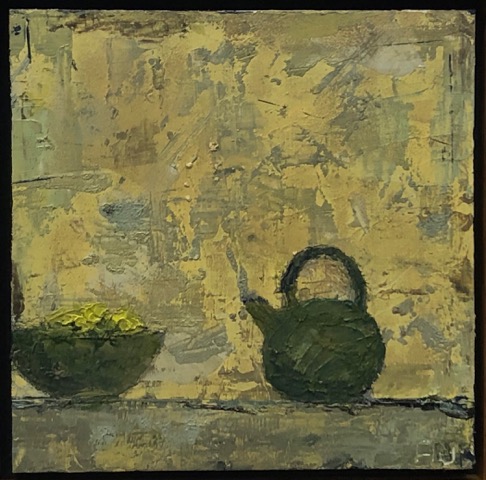
Nomads
Only love can stop time (only
love deters devastation)
we ripped cities in half
(crossed rivers and lakes)
Willing to visit places with
ünprøounceåble names. It is necessary to know the maps
offhandedly
(never avoid borders
never stay behind)
everything should haunt us
like snow
in April. Only love stops time only
inside it the enigma abides
(launching shapeless stones and the lake
rendering circles).
* * *
Nómadas
Só o amor pára o tempo (só
ele detém a voragem)
rasgámos cidades a meio
(cruzámos rios e lagos)
disponíveis para lugares com nomes
imprønünçiåveis. É preciso conhecer os mapas
mais ao acaso
(jamais evitar fronteiras
nunca ficar para trás)
tudo nos deve assombrar como
neve
em abril. Só o amor pára o tempo só
nele perdura o enigma
(lançar pedras sem forma e o lago
devolver círculos).
*** *** ***
 João Luís Barreto Guimarães was born in Porto, Portugal in June 1967 where he graduated in medicine. He is the author of 13 poetry books and anthologies such as Mediterranean (Mediterrâneo
João Luís Barreto Guimarães was born in Porto, Portugal in June 1967 where he graduated in medicine. He is the author of 13 poetry books and anthologies such as Mediterranean (Mediterrâneo
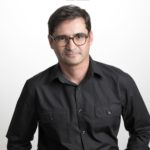
António Ladeira was born in Portugal in 1969. He currently lives in Lubbock, USA, where he is an Associate Professor of Portuguese and Spanish at Texas Tech University. He holds a Licenciatura degree in Portuguese Studies from Nova University in Lisbon, and a PhD in Hispanic Languages and Literatures from the University of California in Santa Barbara. He taught at Middlebury College and Yale University and he was a visiting researcher at the Universidade de São Paulo, in Brazil. He has published five volumes of his own poetry in Portugal and two books of short stories in Portugal, Brazil and Colombia. He is also a lyricist for Jazz singer Stacey Kent.
 Calvin Olsen is an internationally published poet and translator. He holds an MA in English and Comparative Literature and an MFA in Creative Writing. He has taught English, composition, creative writing, and comparative literature at Boston University, The University of North Carolina at Chapel Hill, Wentworth Institute of Technology, and Bunker Hill Community College. He is currently an optician and social media manager in addition to his work as a freelance copywriter and editor. Calvin’s work has appeared in AGNI, Tampa Review, The Baltimore Review, International Poetry Review, The London Magazine, and many others. A former Robert Pinsky Global Fellow and recent Pushcart Prize nominee, Calvin now lives in Chapel Hill, North Carolina, where he is poetry editor for The Carolina Quarterly.
Calvin Olsen is an internationally published poet and translator. He holds an MA in English and Comparative Literature and an MFA in Creative Writing. He has taught English, composition, creative writing, and comparative literature at Boston University, The University of North Carolina at Chapel Hill, Wentworth Institute of Technology, and Bunker Hill Community College. He is currently an optician and social media manager in addition to his work as a freelance copywriter and editor. Calvin’s work has appeared in AGNI, Tampa Review, The Baltimore Review, International Poetry Review, The London Magazine, and many others. A former Robert Pinsky Global Fellow and recent Pushcart Prize nominee, Calvin now lives in Chapel Hill, North Carolina, where he is poetry editor for The Carolina Quarterly.
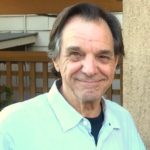 Anthony Ulinski is a painter and woodworker in Raleigh, North Carolina. His work has been exhibited at the Smithsonian Craft Fair, the Philadelphia Museum of Art Craft Fair, the John Elder Gallery in New York, Funeria in San Francisco, and other galleries and museums across the United States. He has taught at Penland, Haystack, Arrowmont, and other craft schools, and is a recipient of residency fellowships at the Virginia Center for the Creative Arts and Vermont Studio Center. He serves on the board of directors for Pocosin Arts Center in Columbia, North Carolina.
Anthony Ulinski is a painter and woodworker in Raleigh, North Carolina. His work has been exhibited at the Smithsonian Craft Fair, the Philadelphia Museum of Art Craft Fair, the John Elder Gallery in New York, Funeria in San Francisco, and other galleries and museums across the United States. He has taught at Penland, Haystack, Arrowmont, and other craft schools, and is a recipient of residency fellowships at the Virginia Center for the Creative Arts and Vermont Studio Center. He serves on the board of directors for Pocosin Arts Center in Columbia, North Carolina.
